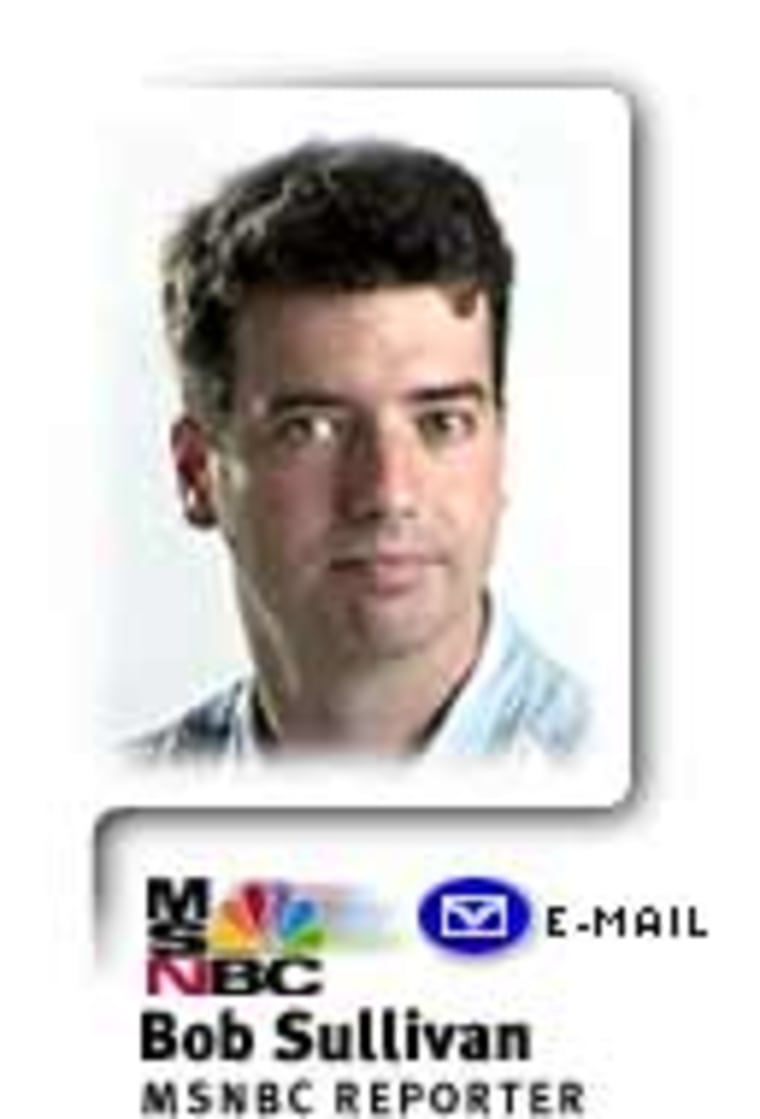Brian Tinney apparently tried to pull an Internet scam on the wrong guys. Using the alias David Gilespe, Tinney allegedly contacted two small Massachusetts firms in January looking to buy half a million dollars worth of Cisco hardware. But there was a catch. The businesses’ owners, Mike Kozlowski and Dana Andrews, said that Gilespe insisted on using an Internet escrow company that neither had heard of. A few days later, after Kozlowski read an MSNBC.com story on fake escrow scams, he contacted the FBI and Tinney was arrested in a sting operation.

IT WAS THE KIND of call every small business owner dreams of. According to Kozlowski, Gilespe said his company, Data Systems International, had just landed a huge contract with the online casino industry. He needed lots of expensive computer equipment, and he needed it fast. So Gilespe contacted Kozlowski’s International Computer Purchasing company and Andrews’ Digital Surplus, which share an office in Wenham, Mass.
“He told us a Cisco ‘rep’ had recommended us,” Kozlowski said.
But the bitter memory of a scam that cost Andrews $16,000 last year was still fresh, and he wondered if the deal was too good to be true. Andrews’ suspicions were heightened when the buyer insisted on using the American Escrow Corp., a company he was unfamiliar with.
So Kozlowski asked his brother-in-law — who coincidentally lived only three blocks from Data Systems International’s alleged San Francisco office — to visit the company. The address was bogus, and he knew something was wrong.
Then Kozlowski checked out the Internet domain registrations for Data Systems International and American Escrow. Both had been created on Jan. 8, and both were registered to the same person. As escrow services are by definition a third party to a transaction, that was a sure sign that something was amiss.
POPULAR AMONG CON ARTISTS
The comfort provided by escrow services — often cited as the safest way to transact online — has been turned upside down in recent months. Last July, MSNBC.com reported that con artists were creating elaborate fake escrow sites which lured buyers and sellers into a false sense of security. The crime is much more common now, and some victims have lost thousands of dollars to the con.
In one scam, criminals convince buyers to send money to the false escrow firm, and pocket the cash without sending merchandise. In another, the escrow firm sends confirmation that it’s received payment for merchandise, and tells the seller to ship. Of course, the money never arrives.
That’s what Kozlowski was worried about. So when he became convinced there was a scam going on, he e-mailed MSNBC.com.
“Do you have any law enforcement contacts working on the escrow scam cases,” he said. “We are in the middle of an escrow scam for almost $500,000. TODAY!!!! Have not lost any money but we have the ability to set up a scumbag.”
MSNBC furnished him with the name of an FBI agent known to be working other escrow scam cases.
A week later, the FBI took Kozlowski up on his offer. A simple sting was arranged. Kozlowski played along with “Gilespe,” and as directed sent what was supposed to be 10 boxes of Cisco routers to a private postal company address in Las Vegas. In reality, the boxes were filled with bricks, so they would weigh precisely as much as the equipment the con artist expected.
On Jan. 30, Tinney drove from his Vista, Calif. home to Las Vegas to accept the shipment. But when Tinney arrived, he didn’t know an FBI agent was sitting behind the counter waiting for him.
HE WAS ECSTATIC
“He was ecstatic,” when he arrived, the agent told Kozlowski. “They let him load the boxes into the car. Then the agent said, ‘I think I have one more box here, behind the counter.’ And then they jumped him.”
Tinney, 33, was indicted Thursday on six counts of wire fraud, according to Assistant United States Attorney James Spertus in Los Angeles. In addition to the fake order for up to $500,000 in equipment from International Computer Purchasing, papers found in Tinney’s car indicated he was also hoping to pick up another $100,000 worth of equipment sent by a Santa Barbara, Calif. company.
Andrews and Kozlowski said that while Tinney wasn’t smart enough to avoid the FBI trap, the scheme he was using was cleverly crafted.
“He is incredible on the phone, Kozlowski said. “He knew everything about the equipment he was buying. His story was very believable.” At one point, Tinney even had a woman call posing as an employee of the fake escrow company. And their Web site — Escrowcorp.net — was an exact duplicate of a real escrow firm’s Web site.
But what Tinney didn’t know is that Andrews had cooperated with federal authorities before, nabbing con artists in another sting operation in 1994.
“Too many people sit on their butt and say, ‘No, I’m not going to get involved,’ and these guys just keep going and going,” Kozlowski said. “If they don’t hit us they’re just going to hit someone else. And if they get stiffed and go out of business, eventually I get stiffed too. ... But really, we we were doing this for personal satisfaction.”